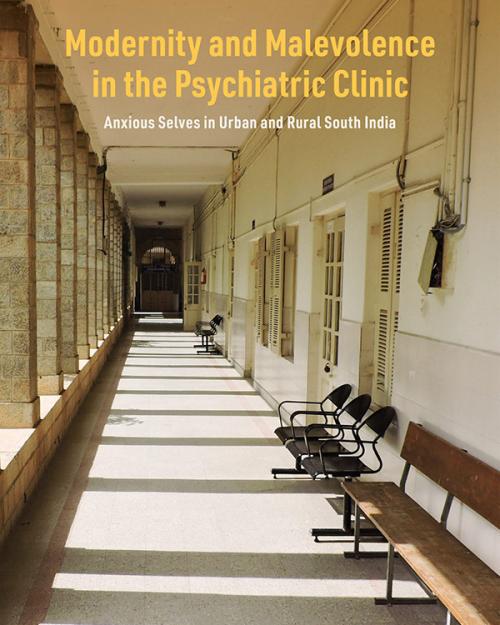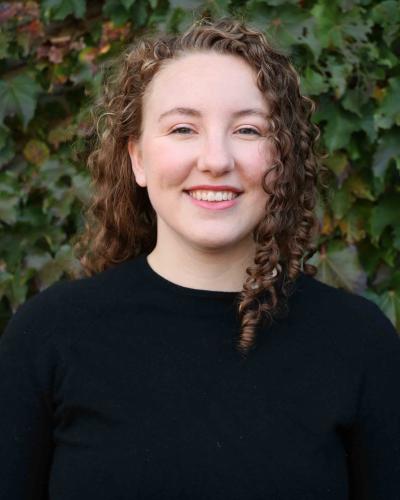Anna Rose Marion '25 shares her experiences majoring in anthropology as she reflects on her time at Cornell before graduation.
What inspired you to choose Anthropology as your major? Do you have a specific area of interest?
I originally chose to study Anthropology because I wanted to understand the local and cultural ramifications of environmental policy proposals. Studying topics in environmental anthropology has allowed me to investigate the cultural, political, and social dimensions of human interactions with the environment across temporal and spatial scales. Through my work in the major, I have also gained a broader appreciation for ethnography as a method of socio-cultural anthropology, fostering my observational and inquiry skills.
Was there a particular faculty member or class that influenced you?
It would be impossible to choose only one anthropology class or department professor who has influenced my learning. Some courses were crucial to my foundational knowledge of Anthropology and inspired my development as a scholar. Taking Dr. Chloe Ahmann’s Introduction to Sociocultural Anthropology during the Fall Term of my freshman year confirmed my burgeoning interest in the discipline and opened my eyes to the power of ethnographic inquiry. In Introduction to Biopolitics with Dr. Thomas Campbell, I not only developed a foundational understanding of biopolitical theory, but I also gained experience reading difficult theoretical texts, such as those written by Foucault as well as Arendt, Esposito, and Mbembe. Dr. Amiel Bize’s class on Racial Capitalism was foundational in my understanding of the history and current reality of the co-constructions of both race and capitalism, as well as the violent roots of many aspects of our world that we take for granted—including property, insurance, and finance. Dr. Stacey Langwick’s Toxicity class taught me the role of writing as a form of remedy in a non-innocent world and reminded me of the importance of asking: What stories need to be told, how should they be told, and who should do the telling? Additionally, other courses critically informed my undergraduate research and work toward my senior thesis. Dr. Marina Welker’s course Ethnographies of Development helped me contextualize my inquiry into the global cultures of seaweed within the larger realm of scholarship on development and sustainable development. Ecopolitics, with Dr. Chloe Ahmann and Dr. Amiel Bize, provided a space to think critically and hopefully within the mess of planetary instability and imagine new alternatives.
What accomplishments/activities are you most proud of while at Cornell?
I am very proud of my work on my honors thesis. Mounting concerns about climate change have turned global attention to seaweed as a potential climate mitigation solution. In “Life Within the Seaweed Value Chain: Lessons For Sustainable Development Toward a Low-Carbon World,” I examine different socio-ecological relationships within the innovation-oriented industry of Norway and the subsistence value chain of the Philippines. Examining the cultures of seaweed in these two countries reveals how different flows of seaweed, knowledge, capital, and power enable industry actors to either imagine a low-carbon future or scramble in the present for security amid a precarious future determined by the changing climate.
My thesis is the culmination of two years of dedicated research. In 2023, I was named a Laidlaw Undergraduate Leadership and Research Scholar, which funded my two-year research assistantship with Dr. Jenny Goldstein in the Department of Global Development, studying the obstacles to scaling production within the global seaweed value chain. I performed a comprehensive literature review, in which I found that much of the literature ignored the sociocultural and ecological dynamics of increasing production. I presented this initial review as a poster at the 2023 Laidlaw Scholars Conference at the University of Toronto and the Cornell University Laidlaw Scholars Colloquium. To continue my inquiry into global seaweed production, I knew that I needed to conduct ethnographic fieldwork. I applied for and won two additional grants, including the Freedman Award for Undergraduate Research in Anthropology, to study the global seaweed industry both as a speculative market in Norway and as a long-standing development project in the Philippines during June and July of 2024.
My work has led to recognition by faculty. I was invited by Dr. Anindita Banerjee in the Department of Comparative Literature to contribute a chapter to a book entitled Border Environments, currently in press at Cornell University Press. In “The Eight Miles: Living With the Coastal Frontier,” I critically examine the process of repeatedly constructing seawalls at the coastal frontier in the absence of a more resilient design in the town of Rye, New Hampshire. I arrive at an alternative way of conceptualizing climate adaptation by exploring the involvement of social relations, governance institutions, and management actions in negotiating how we respond to our changing climate. Additionally, I was invited to serve as a Teaching Assistant for two courses at Cornell Law School in U.S. and International Environmental Law and Policy, and a Department of Natural Resources course in Environmental Governance.
Further, outside of the classroom, I have dedicated much of my time at Cornell toward dance through my involvement in the PMA Department and Rise Dance Group. As a dancer in the PMA Department, I have trained weekly with the dance faculty and danced in department showcases during all four years. As a member and the current President of Rise Dance Group, I have co-produced our annual performances, choreographed numerous dances, and worked to foster an inclusive, supportive, and creative community for dancers on campus.
What are your plans for the near future?
After graduation, I will be continuing my studies in graduate school. In the fall, I will be attending the University of Cambridge to pursue an MPhil in Geography. There, I will be furthering my research on the Philippine seaweed industry. In my proposed research study, I specifically seek to understand what it means to “hang on” in the present amid a future made more uncertain by climate change and unstable political dynamics. I will consider how diverse actors may engage in envisioning a resilient future and how the roles and values of coastal communities, value chain positions, and oceans are thrown into flux by climate change and the low-carbon transition. I aim to address this research question: How do flows of algae, capital, and power illuminate new lessons about the future of sustainable development and the global low-carbon transition, and how may “resilience” take shape in practice as coastal futures are made material in the present?
What do you think you'll miss most about Cornell/Ithaca after graduation?
I will miss the strong sense of community at Cornell and in Ithaca as a whole. The community here is warm, creative, driven, and deeply engaged. Within this beautiful landscape, I have had the privilege of exploring my passions and building long-lasting connections with numerous fellow students and faculty.
Do you have any advice for students new to Anthropology?
To students new to Anthropology, explore the topics within this diverse field that interest you. No matter your interest, there is a place for you in the Anthropology Department. I would encourage you to take classes from professors whose work you admire. Be creative and inquisitive. Don’t be afraid to ask questions that no one else has asked, or let disciplinary boundaries confine your thinking. Explore research opportunities because doing so may take you around the globe! And of course, do all of your readings and check Canvas regularly.





